Recipes for Success: a tasty way to share lessons and good practice
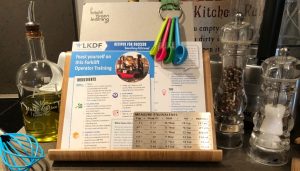
As winter arrives in the Northern Hemisphere and 2017 comes to a close, it is a time to reflect on our work and give thanks for all the opportunities and lessons of the past year. It’s also traditionally a time for cooking!
We seized on this idea recently with UNIDO’s Learning and Knowledge Development Facility (LKDF), where Gillian has worked as a Learning Expert for several years. LKDF wanted a fresh and engaging way to capture the lessons and successes of its innovative Public-Private Development Partnerships (PPDPs) and share them with the public, partners, and donors during a meeting.
From a forklift operator training project in Iraq, to a project in South Africa that uses virtual reality to safely teach students how to use log-cutting equipment, young people are learning the technical skills they need to find jobs and become part of a skilled workforce in their countries. How could the learning be interestingly captured and shared from eight projects around the world?
“Recipes for Success”
With holiday cooking on our minds, we captured the lessons and good practices of the projects with specially designed recipe cards called “Recipes for Success”.
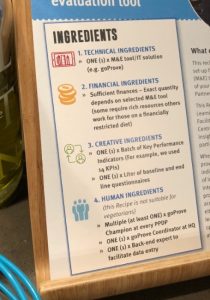 We began by sending a template and a sample recipe to project managers ahead of the meeting, asking them to provide information about their projects. We worked with one game manager in advance to create a fun sample recipe we could share, which gave people an idea of what we were looking for – we wanted “ingredients”, directions, preparation, and “cooking times” for their projects.
We began by sending a template and a sample recipe to project managers ahead of the meeting, asking them to provide information about their projects. We worked with one game manager in advance to create a fun sample recipe we could share, which gave people an idea of what we were looking for – we wanted “ingredients”, directions, preparation, and “cooking times” for their projects.
An editing job spiced up the answers and clever formatting converted them into recipe cards. Tips and variations were included, such as “This recipe is for counterbalanced trucks below 5 tonne only” and “This recipe is designed for a maximum of three learners to one instructor so it is makes a small portion with a lot of impact (driving experience).” Although not your typical easily reproducible recipes, they gave the flavor of the project, provoked interest for more information and provided a funny and memorable takeaway for participants.
You’ve Heard of Speed Dating, and Speed Meeting… How about Speed Eating?
On the evening of our meeting, partners gathered for a not-so-typical meal to learn more about each project.
In a room with 10 small, numbered tables, Recipe Holders (project managers) had 6 minutes to share their project “recipe” with a group of 5 donors, colleagues and industry partners. Each Recipe Holder had a stack of recipes to hand out and a 3-D object from their project, from a beautiful hand made shoe (from the leather panel training project in Zambia) to a set of branches (from the virtual reality forestry training project in South Africa).
After six minutes a bell rang, and each group moved in chronological order to the next numbered table, where they met the next Recipe Holder. On each table was also a set of real appetizers, so as the participants talked to the project managers and collected the recipes, they were also able to have a bite to eat. (That’s dinner sorted!)
Inspired by the global love for eating and cooking, especially at this time of the year, we found a fun and more engaging way to share learning and good practices. If you think back at your year, what did you learn? What would be your Recipe for Success?
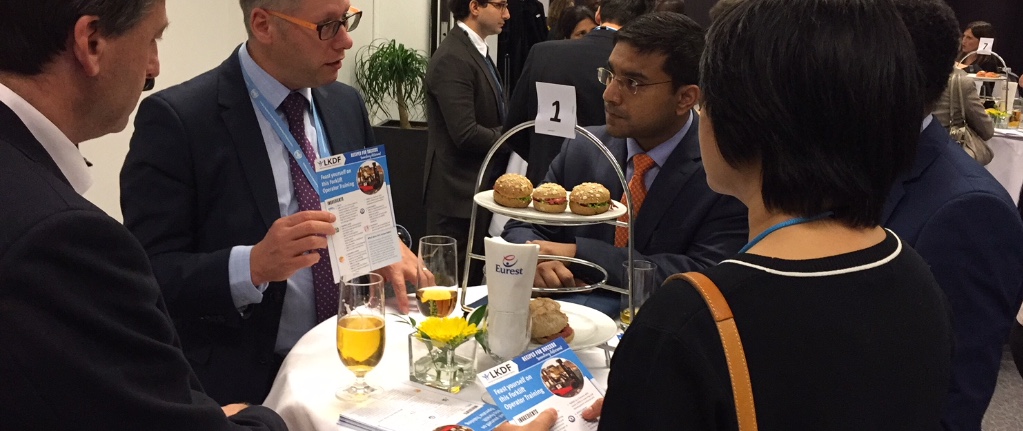
More food for thought
Bite-Sized Learning
Sharing information is hard. We have so much we want to share that we tend to push it out in large quantities and in the same old ways. How can we cut through the tidal wave of information, find the best nuggets, and make information stick?
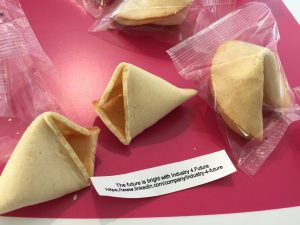
One way is to make it bite-sized! Fortune cookies can be a good way to make information stick. Besides being tasty, they can provide a little, physical reminder to join a LinkedIn group, recall a key lesson from a team-building exercise, or follow up on a commitment.
There are other ways to make it short: learn how quiz-based micro-learning can deliver a wealth of information in manageable “nuggets”.

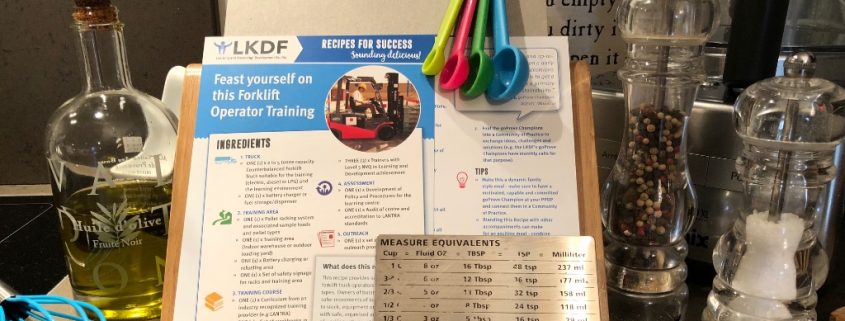




Leave a Reply
Want to join the discussion?Feel free to contribute!